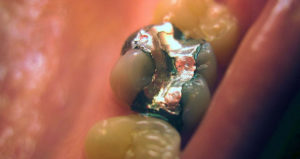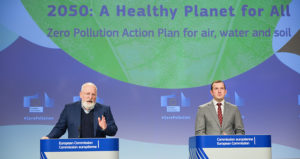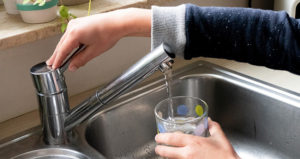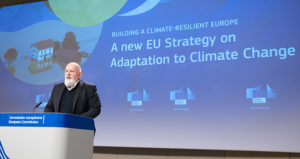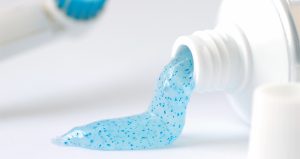European Commission urged to act upon pharmaceutical discharges
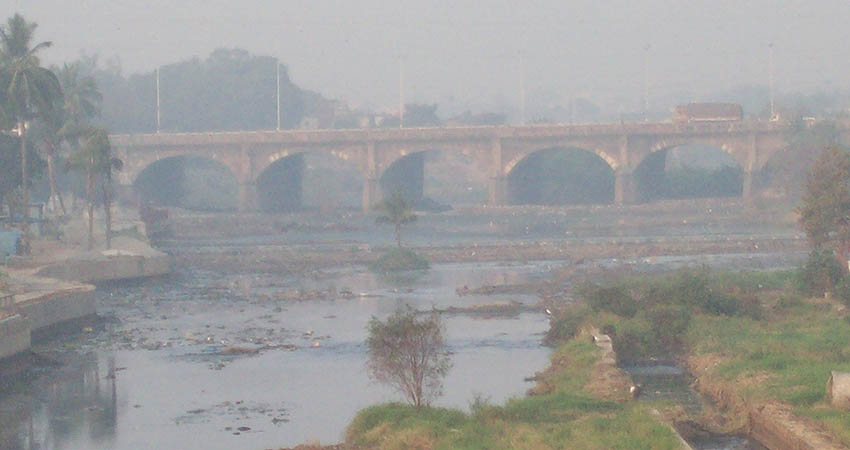
-
 Editorial Team
Editorial Team
Share article:
Investors, water companies and NGO’s wrote an urgent letter to president Jean-Claude Juncker of the European Commission in the beginning of July. They are worried about spreading resistant bacteria in the water environment and are asking Brussels to take action against the pollution of medical residues.
The letter was an answer to a news report in The Guardian based on leaked documents that prove that European plans to add environmental standards for medical products have been deleted or diluted. Proposals that did not make it include an EU push to have environmental criteria for antibiotic use including international manufacturing requirements. This would have allowed EU inspectors to visit factories in Asia or Africa, sanctioning them were evidence of pharmaceutical pollution found. The new regulation could have impacted trade negotiations between the EU and India, where waterway pollution more than doubled in the first half of this decade, partly due to industrial effluent.
Monitoring is required
While the pharmaceutical industry favours a voluntary approach aimed at establishing ‘acceptable’ concentrations of pharmaceuticals in the environment, the writers of the open letter state that monitoring real-world effects is required to inform better policy-making. ‘Existing information provided in the Environmental Risk Assessments performed by industry is scarce, scattered in individual reports, heterogeneous, incomplete and not publicly available. Environmental impacts are only included in the reporting of adverse events of the veterinary pharmacovigilance system and, in any case, are reported relatively infrequently through the established tools’, according to the writers.
Severe health risk
According to experts medical residues in the environment poses one of the gravest threats to global public health this century. Unless drastic measures are taken to contain the proliferation of drug-resistant microbes, the resulting annual death toll is expected to rise from today’s level of 700.000 to 10 million people worldwide by 2050. That is significantly more than the number of deaths currently caused by cancer. UN Environment recently identified growing antimicrobial resistance linked to discharge of drugs and particular chemicals into the environment as one of the most worrying health threats today.
Broaden Good Manufacturing Practices
The writers (Aviva Investors, Nordea Asset Management, EurEau, European Public Health Alliance, European Environmental Bureau, Pesticide Action Network Germany, Health Care Without Harm Europe, Envirohealth Matters and the Changing Markets Foundation) ask the European Commission to broaden the Good Manufacturing Practices (GMP) framework to cover environmental impacts of pharmaceutical manufacturing.
Produced in third countries
The inclusion of environmental criteria in GMP is imperative to curb the environmental and human health impacts of pharmaceutical manufacturing, which include the global spread of drug-resistant bacteria. The vast majority of EU pharmaceuticals are produced in third countries where environmental controls are lax and poorly enforced. Several studies have shown that polluting factories breeding resistant bacteria are exporting to EU markets and directly selling drugs to EU-based health providers, such as German insurance companies.
Pharmaceutic lobby
According to the Guardian public records show that the European Federation of Pharmaceutical Industries and Associations had more than 50 meetings with the Juncker commission in its first four and a half months of office. In the same period, GlaxoSmithKline had fifteen meetings with the commission, Novartis had eight engagements, Sanofi and Johnson & Johnson had six sessions apiece, while Pfizer and Eli Lilly both met with EU officials five times each.
The final version of the EU’s strategy on pharmaceuticals in the environment is expected to be published later this summer.

